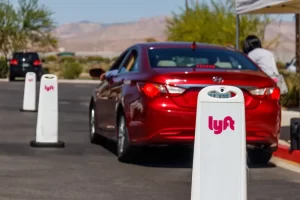Photo: Colorado Governor Jared Polis courtesy of Wikipedia.
Colorado Governor Jared Polis has vetoed a high-profile bill that aimed to bolster safety regulations for Uber and Lyft passengers, citing concerns that the legislation could drive ride-hailing companies out of the state. His decision has sparked backlash from survivors of rideshare-related assaults and their legislative allies, Sara Wilson of Colorado Newsline reported on Friday.
House Bill 25-1291, which passed the state legislature with bipartisan support, proposed a series of passenger safety enhancements. These included optional in-vehicle audio and video recording, a ban on drivers offering food or drink to passengers, new background check protocols, and a provision allowing survivors of serious crimes—including sexual assault and kidnapping—to sue rideshare companies or drivers in civil court rather than being forced into arbitration.
In his veto letter, Polis argued that the bill could unintentionally lead to reduced access to rideshare services. “It would jeopardize these services in Colorado to an untenable degree, and could very well lead to companies that Coloradans rely on exiting the market,” Polis wrote. He also expressed concern that such an outcome could limit transportation for people heading to medical appointments, increase drunk driving, and cause economic hardship for thousands of Coloradans who drive for or rely on the platforms.
Rep. Jenny Willford, one of the bill’s sponsors, is herself a survivor of sexual assault by a Lyft driver—a case that is currently being prosecuted. Alongside co-sponsors Rep. Meg Froelich and Sens. Faith Winter and Jessie Danielson, Willford released a joint statement accusing the governor of choosing corporate interests over survivor safety. “We reject the false premise that safety and access to rideshare services are mutually exclusive,” they said. “This was a David and Goliath battle — and while David didn’t win today, this fight is far from over.”
Uber and Lyft both lobbied against the bill, with Uber publicly stating it would leave Colorado if the legislation passed. Despite multiple amendments to narrow the bill’s scope in response to these concerns, the companies maintained their opposition. The bill passed the House 56-9 and the Senate 22-13 before being vetoed.
Polis cited potential legal conflicts in his decision, including privacy law concerns around the audio/video recording provisions and the likelihood that federal law would override the state’s attempt to ban arbitration clauses. “I fear victims attempting to bring a claim in court in reliance of this bill will have their claims dismissed based on federal law,” Polis wrote.
Still, the governor acknowledged the urgency of the issue. He directed the Colorado Department of Regulatory Agencies (DORA) to collaborate with lawmakers on alternative solutions, including executive orders or future legislation. He also asked the Public Utilities Commission to strengthen its oversight of rideshare background checks and impersonation risks.
“HB 25-1291 should not represent the end of this conversation on ride share safety,” Polis wrote.
If you’re the victim of sexual harassment or assault, you may be entitled to compensation. Find out what your legal rights are by visiting our Uber and Lyft lawsuit guides.




